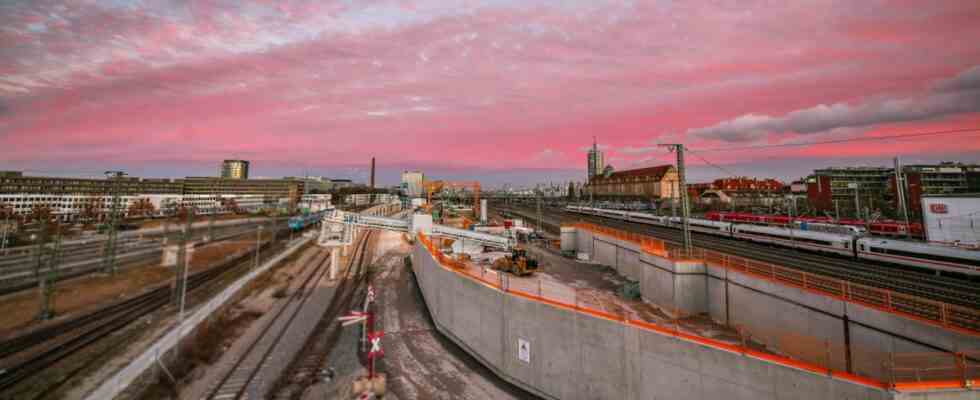The opposition politely asked in the state parliament how this disaster could have happened with the second main S-Bahn line. She etched, drilled and dug, but in the end it fared like the work on the tunnel: she hardly made any progress. The Bavarian Transport Minister Christian Bernreiter (CSU) and Bavaria’s Bahn boss Klaus-Dieter Josel sat on the podium at the meeting of the Transport Committee, they also patiently said something to each question, but the content of their answers remained extremely sparse.
After all, it became known how the processing of the cost explosion from 3.8 to up to 7.2 billion euros and the nine-year delay in completion by 2037 should continue. At the end of July there should be a top-level discussion in Munich between the state government and Deutsche Bahn. The railway wants to announce its updated calculations by the beginning of October. The result of an important test is expected in the same period: The cost-benefit factor will be re-examined because of the higher construction costs. Only if this is above the number one does the project remain undisputedly eligible for funding.
The transport minister had to put up with a whole load of accusations, but essentially his answers were limited to the mercy of his late assumption of office. He was only sworn in as minister this February and has since done everything possible to advance the construction. He blocked questions about his own responsibility. When it came to important details, Bernreiter pointed out that he was not the “clerk” of the second main route.
Towards the end of the almost two-hour questioning, committee chief Sebastian Körber from the FDP concluded: “We cannot force the minister to say anything.” The SPD deputy Inge Aures became a little more vivid when she could no longer bear Bernreiter’s reference to his short term in office. She referred to her own experiences as mayor in local politics: “I was also mayor and had to pay for the shit that my predecessor did.”
Demolition and dismantling are not an option – that alone costs two billion euros
Minister Bernreiter remained clear only in his commitment to the construction of the main line. This remains “an extremely important project for everyone”. The Munich S-Bahn handles two thirds of the passenger volume in Bavaria. The Free State will meet its payment obligations, the federal government must comply with its funding commitments of 60 percent of the construction costs. The state of Bavaria can count on the now predicted construction time up to 2037 “create 200 million extra per year for the main route”. Bavaria’s rail boss Josel also acknowledged the project: “We need the second main route for Munich and the metropolitan region.”
Bernreiter and Josel emphasized that demolition and dismantling are not an option. Two billion euros would then be due, according to the estimate. Josel gave the reasons for 200 ongoing contracts for which damages would be due, as well as the necessary dismantling measures. Bavaria would then have spent three billion euros for nothing, because one billion had already been built up.
Probing questions as to how long the state government had known about the explosion in costs and the delay in construction brought little clarification. The opposition suspects that the cabinet had been informed for some time, but suppressed the information in order not to risk a negative impact on the 2020 local elections and the 2021 federal elections. Until then, the CSU also held the position of Federal Transport Minister. But Bernreiter emphasized again and again that the new figures would not have been available to his house until November 2021. A senior official in his ministry only admitted that there had previously been “a suspicion” that the information provided by Deutsche Bahn could no longer be realistic.
Never before has construction in Munich been so deep
Bahn boss Josel cited extensive expansions as the reasons for the price increase, such as the shell of the planned U 9 at the main station, the effects of “massive market price developments”, the longer approval procedures at the Ostbahnhof and new insights due to the ongoing work. The railway is doing “pioneering work,” said Josel, never before had the building in Munich been so deep. Deutsche Bahn attaches great importance to a “realistic time and cost plan”.
The Green MP Martin Runge used this statement for a historical digression. Since the initial planning, the costs have risen from an estimated 500 million euros at the time to 7.2 billion euros now, and completion has been postponed from 2010 to 2037. In autumn there will now be a second round of processing in the state parliament.

